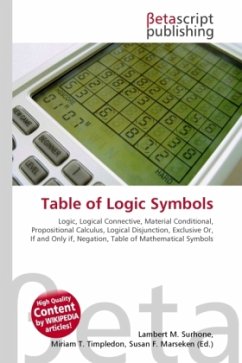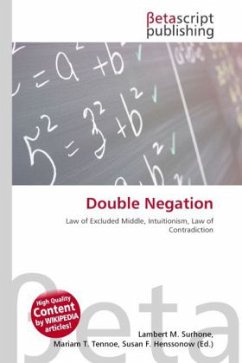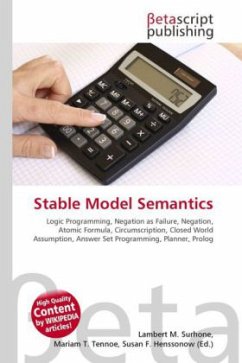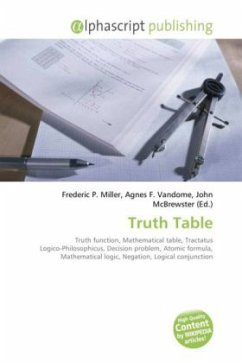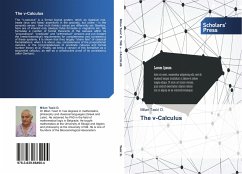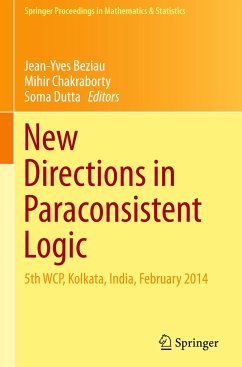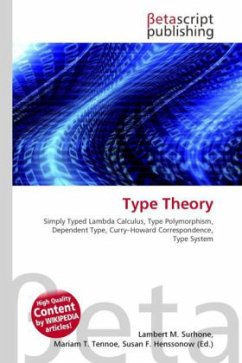
Negation
Versandkostenfrei!
Versandfertig in 6-10 Tagen
23,99 €
inkl. MwSt.

PAYBACK Punkte
12 °P sammeln!
High Quality Content by WIKIPEDIA articles! In logic and mathematics, negation (usually expressed by 'not') is an operation on propositions. For example, in classical logic negation is normally interpreted by the truth function that takes truth to falsity and vice versa. In intuitionistic logic, according to the Brouwer-Heyting-Kolmogorov interpretation, the negation of a proposition P is the proposition whose proofs are the refutations of P. Intuitively, the negation of a proposition holds when that proposition is false. Classical negation is an operation on one logical value, typically the v...
High Quality Content by WIKIPEDIA articles! In logic and mathematics, negation (usually expressed by 'not') is an operation on propositions. For example, in classical logic negation is normally interpreted by the truth function that takes truth to falsity and vice versa. In intuitionistic logic, according to the Brouwer-Heyting-Kolmogorov interpretation, the negation of a proposition P is the proposition whose proofs are the refutations of P. Intuitively, the negation of a proposition holds when that proposition is false. Classical negation is an operation on one logical value, typically the value of a proposition, that produces a value of true when its operand is false and a value of false when its operand is true. So, if statement A is true, then A (pronounced "not A") would therefore be false; and conversely, if A is true, then A would be false.



